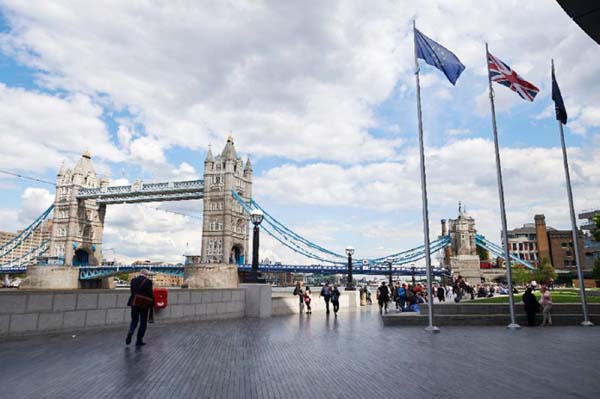
Britain’s referendum on European Union membership could go either way, polls indicated Tuesday, after a day of tearful tributes to slain lawmaker Jo Cox whose brutal murder has overshadowed the campaign.
The killing last week sparked accusations of hate-mongering in an already heated battle for votes before the momentous ballot on Thursday that could determine the political and economic fate of Europe.
Polls indicated the result will likely be close.
An ORB survey for the Daily Telegraph showed the “Remain” on 49 percent, unchanged from a week earlier, while “Leave” was up three points to 47 percent.
“All the signs of ORB’s latest and final poll point to a referendum that will truly come down to the wire,” political strategist Lynton Crosby wrote in the Daily Telegraph.
“The referendum outcome is uncertain. I wish Britain the best.”
A second poll by YouGov for The Times showed “Leave” taking a slim lead of 44 percent support versus 42 percent for “Remain”.
The surveys were mostly taken after the shock murder of Cox, a pro-EU Labour lawmaker and mother of two, who was shot and stabbed in northern England last week.
Her alleged killer, 52-year-old Thomas Mair, gave his name as “Death to traitors, freedom for Britain” in his first court appearance after being charged with her murder.
Commentators questioned whether campaign rhetoric had stirred ugly currents, as criticism focused on a poster unveiled by anti-EU campaigner Nigel Farage, showing a queue of migrants and the words “Breaking Point”.
A senior member of Cameron’s ruling Conservatives, former party chair Sayeeda Warsi, said she was withdrawing support for “Leave” because of the poster.
Farage said the poster was an accurate depiction of the EU’s refugee crisis and accused his rivals of unashamedly using Cox’s death to boost their cause.
“The ‘Remain’ camp are using these awful circumstances to try to say that the motives of one deranged, dangerous individual were similar of half the country or perhaps more who believe we should leave the EU,” he told the BBC.
A third study showed the “Remain” side with a six-point lead on 53 percent, using a methodology that adjusts the data according to how likely respondents are to vote.
Nevertheless, the researchers NatCen emphasised that a 50-50 result was still within their survey’s margin of error.
“It is important to remember that the outcome looks so close that any lead should be treated with caution,” NatCen senior research fellow John Curtice said in a statement.
– ‘Britannic golden age’ –
Two newspapers, the Guardian and the Daily Telegraph, used their Tuesday front pages to endorse opposing sides.
“The EU embodies the best of us as a free people in a peaceful Europe,” urged The Guardian.
“Vote against a divided nation that turns inwards. Vote to remain.”
The Guardian also published an article by billionaire George Soros warning of a “Black Friday” if the country votes to leave.
The business magnate forecast an even steeper drop than occurred on “Black Wednesday” in 1992, which he famously profited from.
“A vote to leave could see the week end with a Black Friday, and serious consequences for ordinary people,” he wrote.
In contrast, the Daily Telegraph implored readers to back Brexit.
“A world of opportunity awaits a fully independent United Kingdom. In supporting a vote to leave the EU, we are not harking back to some Britannic golden age,” it argued.
“If this Thursday’s referendum is a choice between fear and hope, then we choose hope.”
The British referendum has opened the prospect of other nations demanding a vote, perhaps placing in peril the very survival of the European project, which was born out of a determination to forge lasting peace after two world wars.
“Whatever the UK vote is, we must take a long hard look on the future of the Union. Would be foolish to ignore such a warning signal,” EU president Donald Tusk wrote on Twitter.

